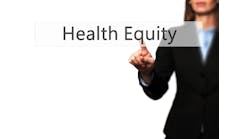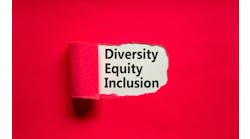On Oct. 6, the U.S. Department of Health and Human Services (HHS) announced via a press release that it is taking steps to improve language access through HHS programs. The steps align with the Biden-Harris Administration’s goal of defeating barriers to equity in healthcare and human services.
The release states that “HHS is taking steps to improve meaningful communication with limited English proficient (LEP) individuals by relaunching its Language Access Steering Committee (Steering Committee) to support HHS’s implementation of language access obligations under President Joe Biden’s recent Executive Orders (EOs), as well as similar obligations under the HHS Equity Action Plan. As part of this Steering Committee, all HHS agencies will reassess and update their language access plans to ensure that LEP persons have meaningful access to HHS-administered health and human services programs and activities.”
The release adds that at the same time, the HHS Office of Minority Health (OMH) is announced more than $4 million in grants to 11 organizations for the Promoting Equitable Access to Language Services in Health and Human Services initiative. The initiative, that will last for three years, aims to cover developing and testing methods that will assist individuals with LEP about the availability of language access services in healthcare settings.
“It is a violation of Title VI of the Civil Rights Act of 1964 for recipients of federal financial assistance to fail to take reasonable steps to provide meaningful access to people whose primary language is not English,” the release notes. “In addition, Section 1557 of the Affordable Care Act requires recipients of federal financial assistance to take reasonable steps to provide meaningful access to health programs and activities to persons with limited English proficiency.”
Recipients, through the OMH initiative, will focus on implementing and evaluating strategies to bolster language access services through policy and development implementation, technology utilization, education for LEP individuals, and education for providers and support staff. Awardees are required to address health disparities for those with LEP and then prove the impact of their efforts on outcomes and the overall goal of advancing health equity.
The recipients of OMH’s Promoting Equitable Access to Language Services in Health and Human Services initiative include:
- Sacramento, Calif.-based Asian Resources, Inc.
- Atlanta-based Georgia State University Research Foundation, Inc.
- Chicago-based Asian Health Coalition
- Wichita, Kan.-based Wichita State University
- Baltimore-based Centro de los Derechos del Migrante, Inc.
- Boston-based Tufts University
- Lexington, Mass.-based Family Voices Inc.
- New York-based New York University Grossman School of Medicine
- Ashville, N.C.-based Western Carolina Medical Society Foundation
- Philadelphia-based Thomas Jefferson University
- San Antonio-based Bexar County Hospital District DBA University Health
HHS Secretary Xavier Becerra was quoted in the release saying that “We know that people with limited English proficiency too often face discrimination when seeking health care and human services. The risk of misinformation, the wrong type of care, or foregoing care altogether is high when language barriers persist. We’re putting policy into action to eliminate barriers to equitable care and leave no one behind.”


